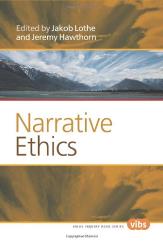|
Howard Sklar, PhD |
|
University Lecturer Department of Modern Languages (English Philology) University of Helsinki
Title of Docent in Literary Studies, with a Special Emphasis in Narrative Theory (University of Tampere) |
|
Howard Sklar, PhD |
|
Course Description
This course will explore the role of ethics in the writing and reading of fiction. Following an introductory session that will provide an overview of the course, the remaining sessions will be divided into two parts:
The first part of the course, “Theoretical Views of Ethics and Fiction” (four sessions), will explore ideas about the ethical considerations that affect both writers and readers in creating and interpreting fictional works. Among other issues, we will look at the role of so-called “moral emotions,” such as sympathy, and the ways that they affect the nature of ethical writing and reading.
In the second part of the course, “Narrative Ethics” (eight sessions), we will examine the role that narrative analysis can play in informing our understanding of the relationship between fiction and ethics. For this part of the course, we will read short works of fiction and analyze the ethical content that they may contain, or the ethical issues or questions that they may raise for readers. As theoretical background, we will look at the ways in which some scholars have analyzed particular novels or stories from an ethical point of view. In addition, we will consider the connection between narrative analysis and reader response.
In the final session, we will have a more general discussion of the role of ethics and ethical criticism in literary studies.
Course Objectives
Through participation in this course, students will:
· Become familiar with a variety of theoretical and literary critical approaches to the ethical study of literature · Be able to apply some of these approaches to the analysis of particular works of literature · Become familiar with some of the discussions and disagreements that have arisen in connection with the ethical study of literature · Become familiar with ways that reader response testing can contribute to the ethical study of literature
Course Requirements (subject to change)
· Regular attendance · Assigned readings · Active participation in discussions · One short paper (6-7 pages) on either the theoretical dimension of fictional ethics OR analyzing a fictional narrative in terms of its ethical content or in terms of its potential ethical effects on readers · A midterm examination on some of the theoretical articles introduced during the first half of the course · Occasional, short “journal entries,” recording own responses to particular topics discussed in the course |
Fiction, Ethics and the Significance of Reading (Fall 2020) |

|
CLICK ON THE PIC! |